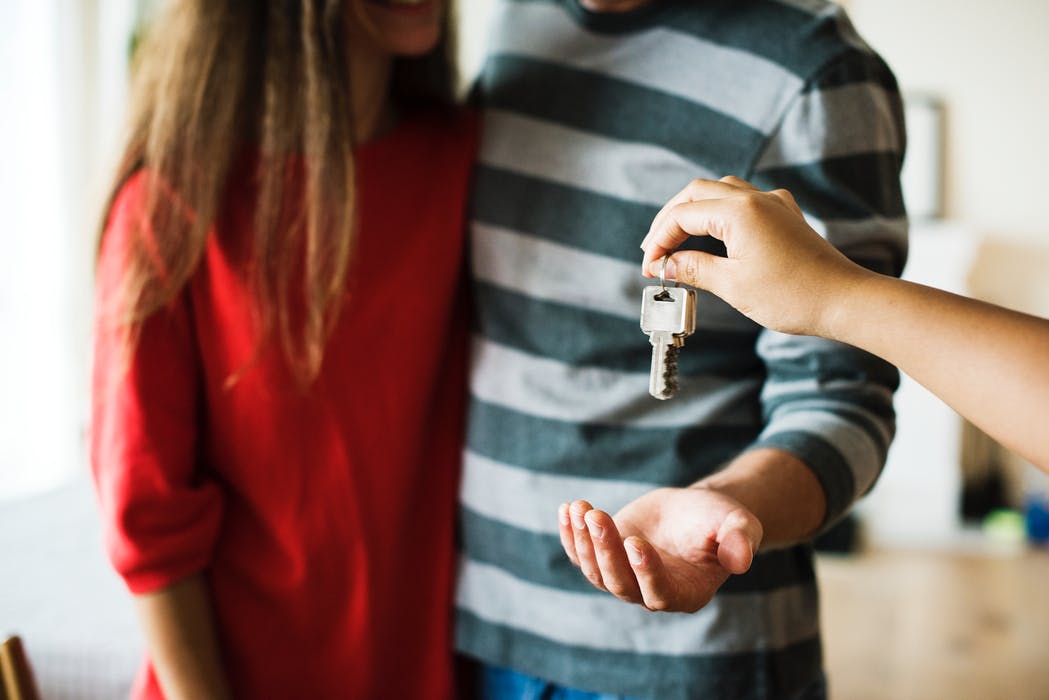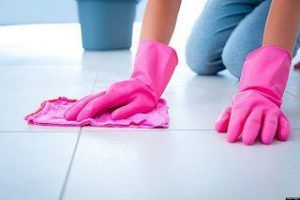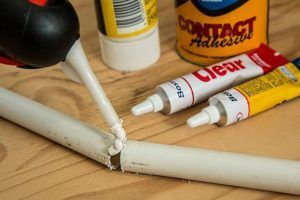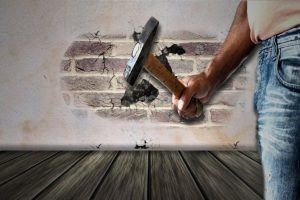It is estimated that up to a fifth of the UK population live in privately rented accommodation, so it may come as a surprise that for so many people living in rented accommodation, few are well versed on their rights when it comes to repairs that need carrying out on their home.
When you rent your home and something goes wrong, it isn’t always clear who the responsibility for arranging repairs lays with. For many tenants, this can lead to long periods living in a fault home, whether that’s no heating, leaks, or something else, trying to work out who is responsible for fixing the problem.

Typically, it is down to your landlord to fix any issues that occur, but sometimes it is up to the tenant to address the issue. To avoid paying out unnecessary fees – or living in a house in need of repairs for a prolonged period – we’ve covered who is responsible for what in this article.
If you are currently renting your home, or are a landlord renting out a property, this article will address who is in charge of what repairs in your rented home, and when.
Contents
- House Repairs: Who Is Responsible?
- How long does my landlord have to carry out repairs?
- What should I do if my landlord won’t carry out repairs?
- Tenant Responsibilities
- Check your tenancy agreement
House Repairs: Who Is Responsible?
Typically, house repairs fall within the remit of the landlord’s responsibility, rather than the tenants. Although there is not an exhaustive list of what a landlord is obligated to repair in your rented home, there are some repairs that landlords must deal with.
These include:
- Fixing broken sinks, toilets, and baths and ensuring they remain in a useable, sanitary condition
- Boiler repairs
- Electrical wiring and electric fires or heaters
- Structural repairs, including any repairs to the exterior of the building, roof, guttering and external doors and windows
- Repairs to the chimney if your house has one
It’s important to note that your landlord only has to deal with these repairs once they are aware of the problem – so regular communication with your landlord to keep them up to date on the state of your home is essential.
How Long Does My Landlord Have to Carry Out Repairs?
Once you have informed your landlord that repairs are needed, they are required to carry out the necessary repairs within a reasonable period of time.
How long exactly they have to carry out this work depends on how serious the problem is.
They must carry out repairs within a reasonable period of time. How long your landlord has to do the work depends on how serious the problem is.
What Should I Do if My Landlord Won’t Carry Out Repairs?
If you have informed your landlord of the repairs that are needed and they haven’t acted on this in a reasonable amount of time, there are a few things you can do.
You should keep all evidence of your communication with your landlord, and you can then report disrepair in your home to your council’s private renting team. If you are not sure what repairs lay with what party still, the first thing you should do is to consult your tenancy agreement, which should outline the responsibilities of both the tenant and the landlord.
As a last resort, you can also take your landlord to court.
You should not withhold rent from your landlord to force them to carry out repairs on your home, as this can give them grounds to evict you at a later date.
Tenant Responsibilities
As you can see, a lot of things that could go wrong with your home are the responsibility of the landlord to repair, which will be a relief to many tenants.
That being said, there are a few things that you (as the tenant) are responsible for – often things that are caused by wear and tear due to you living in the property, or accidental damage that is your fault.
However, there are some things that must be repaired directly by the tenant. This is for cosmetic damage, which can include:
- Damage to door or window (by your own fault)
- Damaged plaster
- Any damage to internal doors or skirting boards
- General maintenance and cleaning
- Small wear and tear repairs
As a tenant, you also have certain responsibilities to keep your home in a reasonable condition. These include:
- Keeping your home (reasonably) clean
- Performing safety checks on the electric appliances that you own
- Maintaining the garden to a reasonable state
- Minor maintenance including replacing light bulbs and smoke alarm batteries when necessary
You don’t need to keep your home in a better condition than before you moved in, but you do need to keep your home maintained to a reasonable level.
Using Your Tenancy Agreement
If you are confused on your rights for a certain repair or part of your contract, your first port of call should be checking your tenancy agreement. Here, you might find that your landlord has included extra conditions that they are responsible for repairing (such as fault fridges. washing machines etc) or find more information as to what the best way to communicate these problems is.
Whether you are a tenant renting your property, a landlord renting out your property, or you’re living in the home you own, protecting your home and its contents from unexpected accidents is essential.







